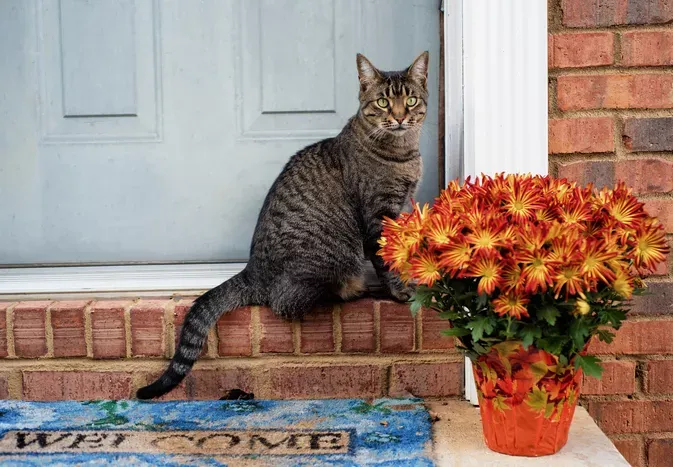Are Mums Toxic to Cats?
Updated on 04/26/24

Are Mums Toxic to Cats? A Comprehensive Guide for Concerned Cat Owners
As beloved feline companions, our cats' well-being is paramount. Consequently, the question of whether mums—also known as chrysanthemums—pose a health risk to our furry friends often arises. This blog post delves into the topic, providing a detailed overview of the potential risks and precautions associated with mums and cats.
Understanding the Potential Toxins in Mums
Mums belong to the Asteraceae family, which includes plants such as daisies, sunflowers, and zinnias. While many plants in this family are harmless to cats, mums contain certain compounds that can be toxic if ingested. These compounds include:
* Pyrethrins: Natural insecticides that can irritate the digestive tract, skin, and respiratory system.
* Cineole: A terpene that can cause vomiting, diarrhea, and liver damage.
Signs of Mum Toxicity in Cats
If a cat ingests mum flowers or leaves, it may exhibit the following symptoms:
* Vomiting
* Diarrhea
* Abdominal pain
* Lethargy
* Drooling
* Tremors
* Seizures
* Liver damage (in severe cases)
Severity of Mum Toxicity
The severity of mum toxicity in cats depends on the following factors:
* Amount ingested: The more mums ingested, the more severe the symptoms.
* Type of mum: Some varieties of mums contain higher levels of pyrethrins than others.
* Cat's age and health: Kittens and cats with compromised immune systems are more susceptible to toxicity.
Preventive Measures to Protect Your Cat
To protect your cat from mum toxicity, follow these precautions:
* Keep mums out of reach: Place mums in areas where your cat cannot access them, such as high shelves or outside of the house.
* Supervise your cat: When mums are present, supervise your cat to prevent them from ingesting any plant material.
* Choose non-toxic plants: If you wish to have plants around your cat, opt for non-toxic varieties such as spider plants, orchids, or catnip.
Alternative Plants for Cats
If you are seeking pet-friendly plants for your home, consider the following options:
* Spider plants: Air-purifying plants that are safe for cats and can help improve indoor air quality.
* Orchids: Beautiful and low-maintenance plants that are also non-toxic to cats.
* Catnip: A natural stimulant that most cats love and is safe for them to ingest in small amounts.
Conclusion
While mums are generally considered to be mild to moderately toxic to cats, ingesting significant amounts of these plants can pose a health risk. By understanding the potential toxins, symptoms, and preventive measures discussed in this article, you can effectively safeguard your feline companion from mum toxicity. Always consult with a veterinarian if you suspect your cat has ingested mums or is exhibiting any unusual symptoms. By providing a safe and healthy environment for your cat, you can ensure their well-being and enjoy their companionship for years to come.
Explore More Pets

Cat Behavior Problems
How to Stop Aggression in Kittens

Long-Haired Cat Breeds
Siberian Cat: Breed Profile, Characteristics, & Care

Cat Behavior Problems
How to Stop Kittens From Scratching and Biting

Long-Haired Cat Breeds
Turkish Angora: Cat Breed Profile, Characteristics & Care

Basic Training
How to Socialize Your Kitten

Short-Haired Cat Breeds
Cute Pictures & Facts About Calico Cats & Kittens

Litter Box Training
Training Your Kitten to Use the Litter Box

Long-Haired Cat Breeds
10 Fun Facts About White Cats